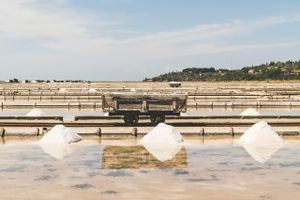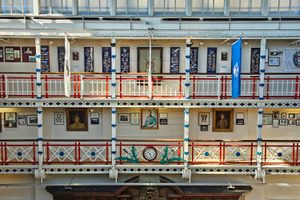Located just outside the medieval coastal city of Piran, Slovenia, along the country’s Adriatic coastline, is the Sečovlje Saltpans Natural Park. The park is one of the last saltpans in the Mediterranean, where salt is harvested by hand using a method going back centuries.
People and nature began co-creating these salt pans as early as the Roman period. By the Middle Ages, these saltpans were in frequent use and ruins of medieval workers’ homes can be seen in the southern part of the park, known as the Fontanigge. The Fontanigge saltpans were still in use as recently as the 1960s.
The northern section of the Sečovlje Saltpans Natural Park, known as the Lera, still produces salt today. In the Lera, workers still use wooden scrapers to rake the salt into piles, a method that has remained virtually unchanged since the Middle Ages. The arduous process yields four different kinds of salt: first salt, traditional salt, Piran salt, and fleur de sel or the “salt flower.”
The Sečovlje Saltpans Natural Park is also rich in biodiversity. Brine shrimp swim in the water and nearly 300 species of birds come here every summer to nest. A variety of plants also thrive in the saline-rich conditions.
The gorgeous Sečovlje Saltpans Natural Park in Slovenia is a natural and historical marvel and well worth a visit. Be sure to grab some local salt!



